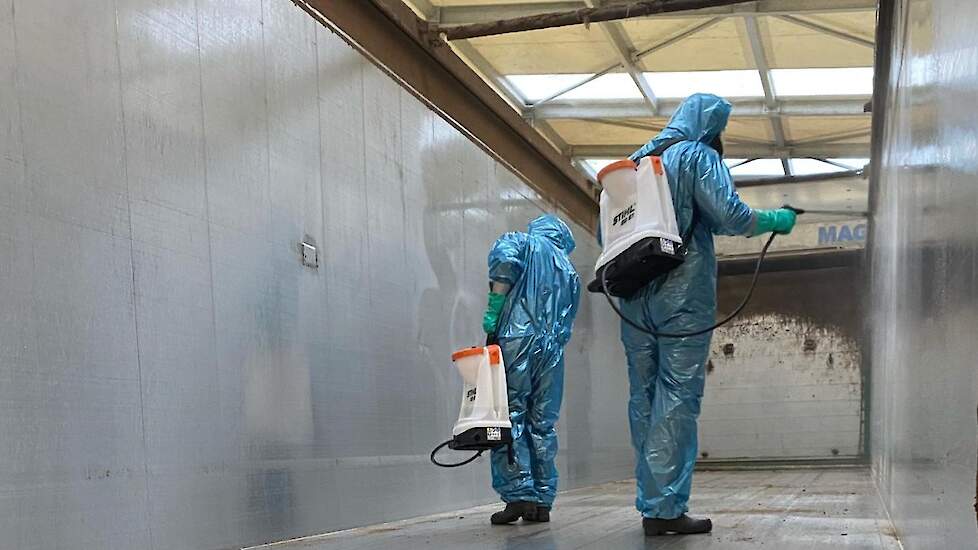
Says Eric Hubers, chairman of LTO/NOP’s poultry department. The solution is the result of the cooperation between NVWA, Avined, LTO/NOP, NVP, and DEP/BMC. On Friday afternoon, 27 November, the power plant in Moerdijk was completely cleared of other poultry manure and vehicles so that the lorries with poultry manure from Altforst and Puiflijk could enter the site. The poultry manure was incinerated on Friday evening. The vehicles underwent an additional cleaning and disinfection procedure before they were back on the road on Monday.
The advantage of the accelerated removal of poultry manure from farms with confirmed cases of bird flu is that it relieves the burden on both the infected farms and the entire BT area. They can get back to work faster with further cleaning and disinfection work with less risk of contamination from the contaminated poultry manure. ‘At Coöperatie DEP and BMC Moerdijk, we like to contribute ideas and help the sector move forward through this approach. BMC Moerdijk has the most suitable processing technology available. We have drawn up protocols for the removal from and delivery to Moerdijk, the incineration as well as the cleaning and disinfection afterwards. All of these protocols were approved by and are performed under the watchful eye of the Netherlands Food and Consumer Product Safety Authority. The removal and processing all went very well,’ says Wil van der Heijden, director of Coöperatie DEP.
Previous situation: storage on poultry farm
After confirmation of a highly pathogenic bird flu infection, the poultry manure is treated after the animals have been removed. It must then remain in the production house for fourteen days before the poultry farmer may remove it. Previously, the poultry manure was stored on the premises and had to remain at the farm for at least 42 days. ‘In practice, this is always difficult. A heap of poultry manure under plastic, in different weather conditions can be attractive to pests and birds. It was never ideal’, says Van der Heijden.
Hubers praises the approach of the Coöperatie DEP and BMC Moerdijk. ‘It is nice that DEP and BMC Moerdijk have helped the affected poultry farmers, who are not members of the cooperative, with the disposal of their poultry manure and want to contribute ideas in the interest of the Dutch poultry sector in this way’, said the chairman.
Source: www.pluimveemest.nl

